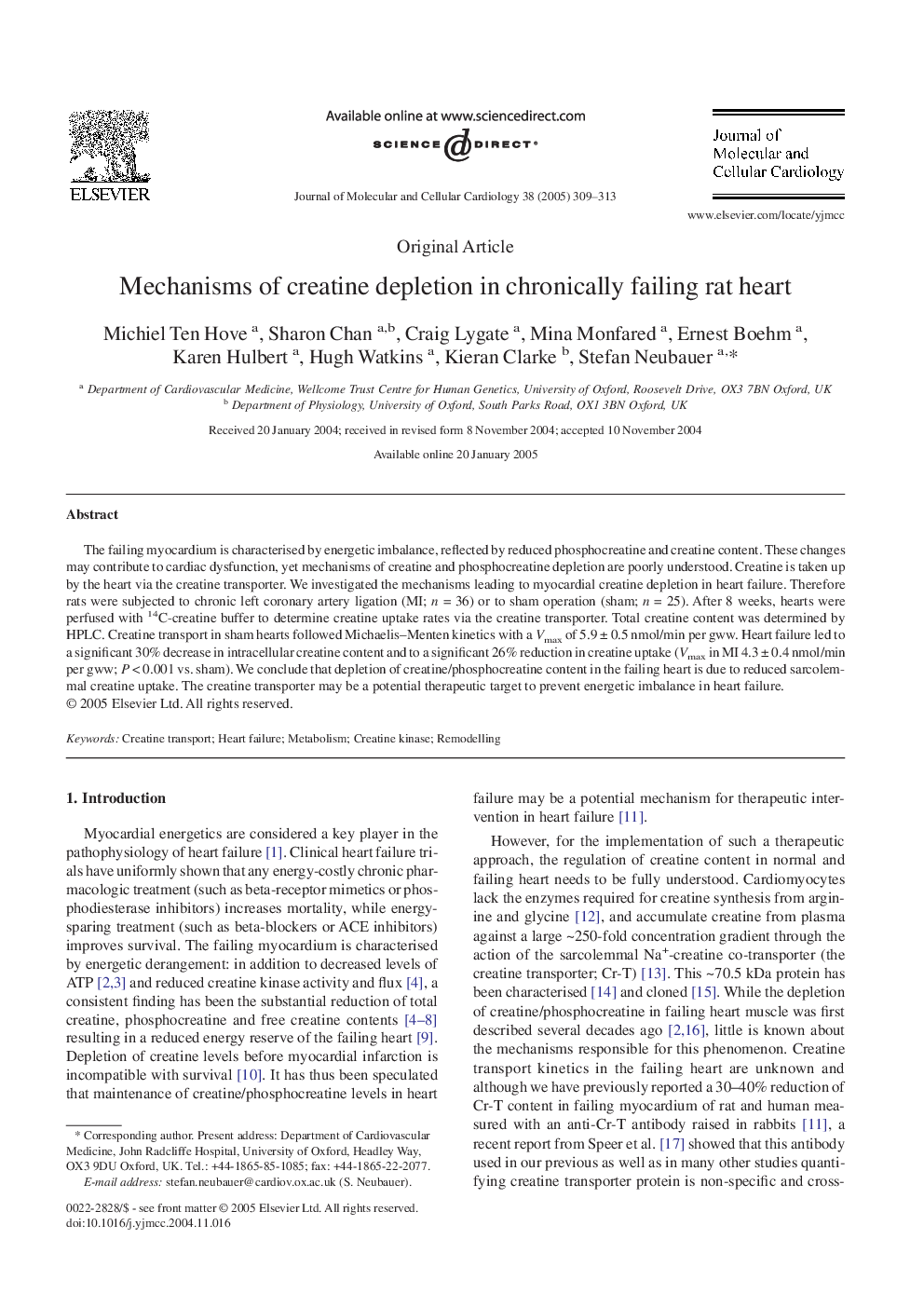| Article ID | Journal | Published Year | Pages | File Type |
|---|---|---|---|---|
| 10954446 | Journal of Molecular and Cellular Cardiology | 2005 | 5 Pages |
Abstract
The failing myocardium is characterised by energetic imbalance, reflected by reduced phosphocreatine and creatine content. These changes may contribute to cardiac dysfunction, yet mechanisms of creatine and phosphocreatine depletion are poorly understood. Creatine is taken up by the heart via the creatine transporter. We investigated the mechanisms leading to myocardial creatine depletion in heart failure. Therefore rats were subjected to chronic left coronary artery ligation (MI; n = 36) or to sham operation (sham; n = 25). After 8 weeks, hearts were perfused with 14C-creatine buffer to determine creatine uptake rates via the creatine transporter. Total creatine content was determined by HPLC. Creatine transport in sham hearts followed Michaelis-Menten kinetics with a Vmax of 5.9 ± 0.5 nmol/min per gww. Heart failure led to a significant 30% decrease in intracellular creatine content and to a significant 26% reduction in creatine uptake (Vmax in MI 4.3 ± 0.4 nmol/min per gww; P < 0.001 vs. sham). We conclude that depletion of creatine/phosphocreatine content in the failing heart is due to reduced sarcolemmal creatine uptake. The creatine transporter may be a potential therapeutic target to prevent energetic imbalance in heart failure.
Related Topics
Life Sciences
Biochemistry, Genetics and Molecular Biology
Cell Biology
Authors
Michiel Ten Hove, Sharon Chan, Craig Lygate, Mina Monfared, Ernest Boehm, Karen Hulbert, Hugh Watkins, Kieran Clarke, Stefan Neubauer,
